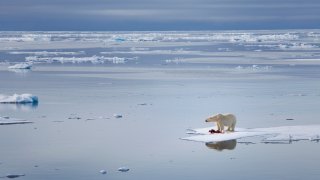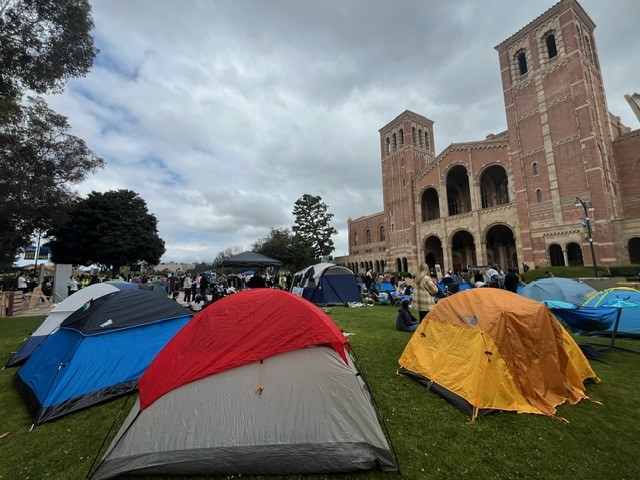
Arctic melting continues at an alarming rate, threatening to erode coastal areas as sea levels rise, UC Irvine and Jet Propulsion Laboratory scientists concluded in a paper published Wednesday.
"We're seeing it's continuing and we're not slowing down," said the study's lead author, UCI professor Isabella Velicogna. "The ice sheets are continuing to lose mass into the ocean at increasing levels consistently."
Last year proved to be an exceptionally warm summer in the Arctic as Greenland lost 600 billion tons of ice, which is enough to hike the global sea levels by 2.2 millimeters in two months, according to the study, which was published in the American Geophysical Union journal, Geophysical Research Letters.
From 2002 through last year, 4,550 billion tons of ice melted in Greenland.
But snowfall in East Antarctica helped minimize the melting, Velicogni said.
"People who live in coastal areas should be concerned," Velicogna said. "We have to do whatever we can now to mitigate (the melting)."
Scientists have been gathering data on the ice melting thanks to the Gravity Recovery and Climate Experiment satellite mission, which launched in 2002, but when it ran out of battery power in 2017 another satellite with similar technology had to be launched in 2018.
Local
Get Los Angeles's latest local news on crime, entertainment, weather, schools, COVID, cost of living and more. Here's your go-to source for today's LA news.
"We really need that observation to keep monitoring what's happening," Velicogna said, adding it will help scientists make plans for mass migration of coastal populations.
"We can work to slow down the process as much as possible until we come up with a climate-change solution," she said.



